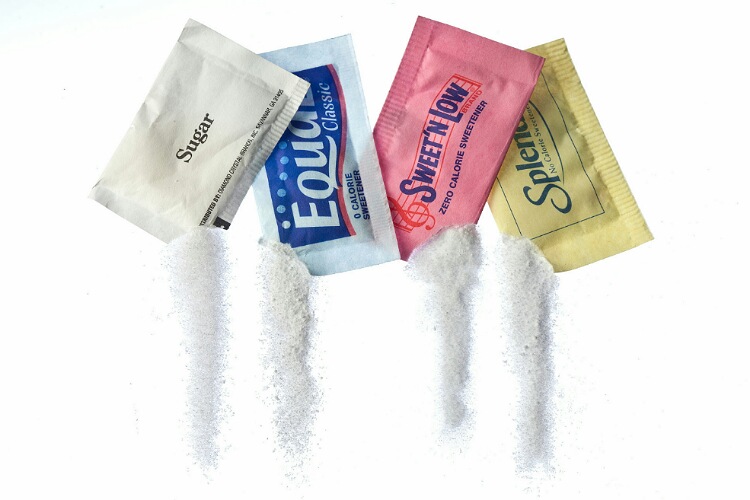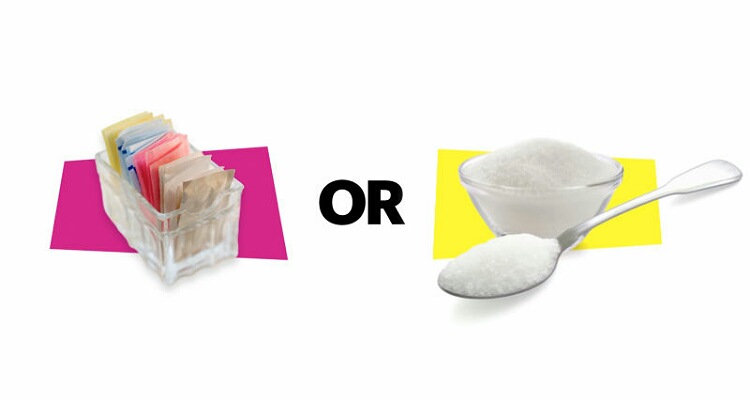Around 3.5 million people in the UK are using artificial sweeteners two times a day, a 2021 data reveals. But recent studies have doubted the efficacy and safety of these sweeteners. Are they beneficial? Are they safe? What is the better option?
Artificial sweeteners and their use in the UK
Obesity has reached epidemic proportions in the UK. Moreover, type 2 diabetes is also on the rise. High intake of foods rich in sugars, fats and salts have been linked to this excessive weight gain and metabolic diseases. In order to control these cases, doctors prescribe artificial sweeteners in place of refined sugars.

These gave sweetness with zero calories. Some obese individuals swap their regular sugars with these sweeteners on their own without consulting their family physicians. Moreover, many times, dietitians and fitness coaches also advise their clients to adopt these sweeteners instead of sugar in their foods.
And now, around 3.5 million British citizens are using them twice a day as per the survey of 2021. But has their use helped reduce obesity and diabetes incidence? Dr Megan Rossi, nutritionist and author revealed:
“Far from saving our waistlines, research suggests that sweeteners may, in some cases, expand them,”
Side-effects of the sweeteners on the body
Sweeteners are not all that safe. There have been several side-effects reported with their constant use. There was a research article in the Journal of the Academy of Nutrition and Dietetics that had studied the effect of these sweeteners on fruit flies. The study showed that they increased the levels of the enzyme, AMPK. This enzyme stimulates the production of the hunger hormones. Due to this, the appetite increases, and weight gain takes place.

Additionally, their intake has been associated with risk of brain tumors, bladder cancer and such cancer in animal studies. However, US FDA has claimed that there is no such risk in humans. The sweeteners can alter the gut microbiome. Glucose intolerance occurs. Aspartame and sucralose can also lead to headaches with prolonged use. The Headache & Facial Pain Center of the University of Cincinnati Gardner Neuroscience Institute stated that there is a strong association between aspartame use and migraine. They can also affect dental health. These sugar replacements settle on the surface of the teeth and cause a drop in oral pH.
There has always been a concern about the long term use of artificial sweeteners. These chemicals have not been studied enough and their links with other diseases are noted often in studies. Also, having them itself cause obesity and diabetes type 2. Therefore, they are not beneficial in preventing these two diseases when they are in fact recommended for them.
Read here: Artificial sweeteners: a new French study links them to cardiovascular disease and cancer!
What is the solution?
Thus, one can see that these sugar substitutes can do more harm than good. Though many people are taking them, one need to educate them about the potential risks that can occur with prolonged use of these chemicals.

Then, what is the best option in these cases? Megan feels that one needs to change oneself and be happy with little sweetness in foods and drinks. Megan asserts:
“If you want sweetness, choose a little sugar over sweeteners,”
